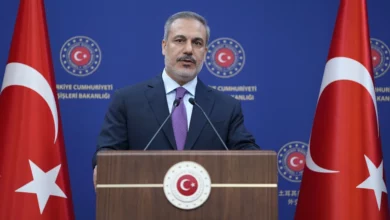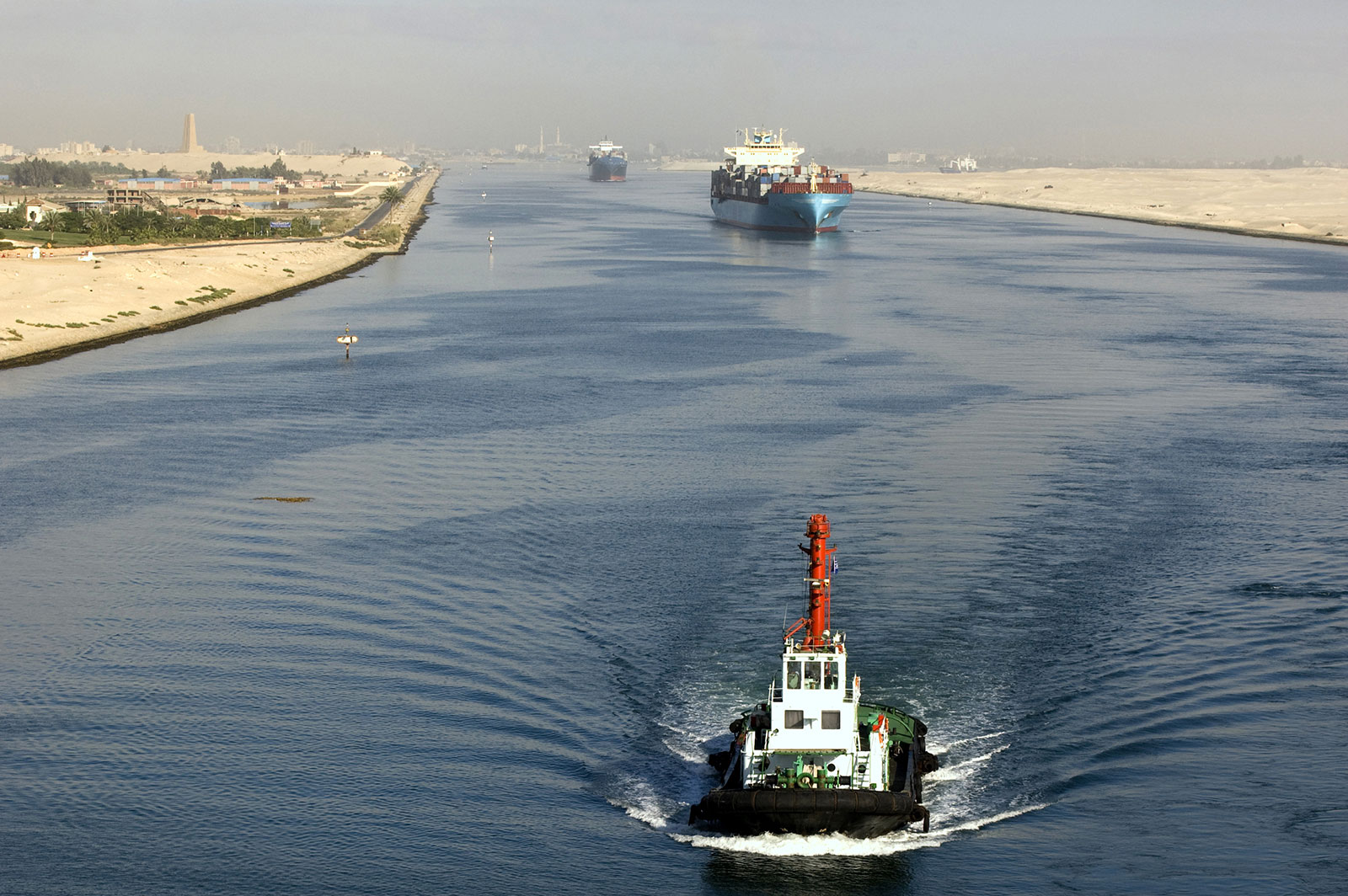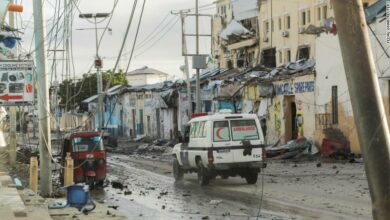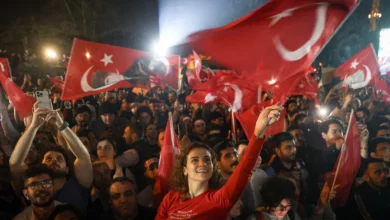Turkey has condemned an activist art installation in Berlin that portrayed Turkish President Recep Tayyip Erdogan as a dictator, shortly before he was due to arrive in Germany for the G20 summit.
The work, in front of the German Chancellery, featured a banner with the faces of Erdogan, Russian leader Vladimir Putin and Saudi Arabia’s King Salman bin Abdulaziz next to a sporty-looking black Mercedes, with the words “Do you want this car? Kill dictatorship.”
It was staged Monday afternoon by an activist art collective, the Center for Political Beauty, known for its provocative — but peaceful — “interventions” on humanitarian themes.
Turkey’s Foreign Ministry condemned what it said was “a new example of rising racism and xenophobia in the country” and urged Germany to take “all necessary measures” over the incident.
“The wording on the banner is a direct call for violence targeting the lives of the leaders whose photos are depicted on it,” a Turkish Foreign Ministry statement said. “The fact that the German police did not intervene in the matter makes this incident even more grave.”
The row comes at a time of strained relations between Turkey and Germany. German Chancellor Angela Merkel in March questioned Turkey’s commitment to democracy and the rule of law, while Erdogan suggested Germany’s Nazi past might not be entirely behind it.
Philipp Ruch, artistic director for the Center for Political Beauty, told CNN the art installation had been staged to coincide with this week’s G20 summit in Hamburg.
“The message that we want to give is that dictatorship is not welcome in Germany,” he said.
“We have a big past with autocracy and totalitarianism and we absolutely know from our own history that it shouldn’t be tolerated.”
Ruch highlighted concerns over the treatment of journalists and opposition activists in Turkey, many of whom have been imprisoned following a crackdown by the authorities in the wake of last year’s attempted coup. The provocative message on the banner is meant to inspire debate, he said.
Ruch said the German authorities had not responded to the Turkish government’s request for action against the group, adding that post-war Germany has a strong tradition of freedom of expression.
“This is a democracy and a state with the rule of law, and this is what I really love about our country as an artist,” he said.




